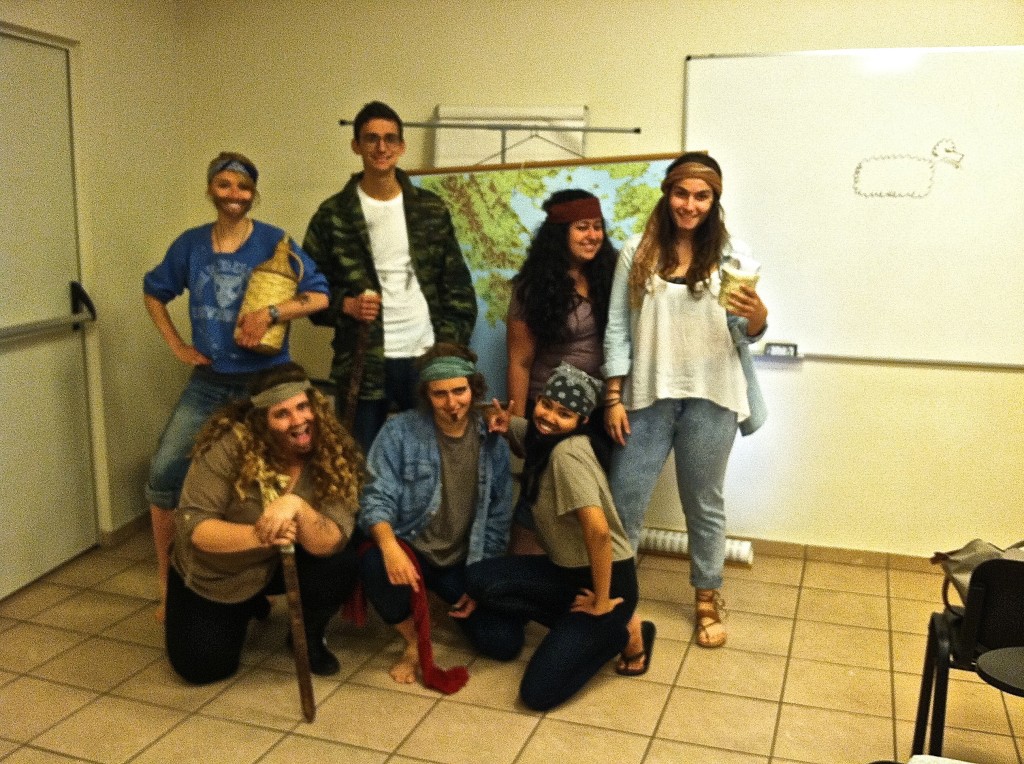
The semester is finally winding down, and that means due dates of final papers, exams, and projects and looming closer by the day. One of the more enjoyable final semester projects has been the ancient Greek theater performance for my Attic Tragedy class. Throughout the semester, we have been reading through the works of famous ancient playwrights like Euripides, Sophocles and Aeschylus. While there are a couple classes at CYA that work on just translating these works from their original ancient Greek script, our class instead reads the translated versions of these plays and focuses understanding the breadth and variety of performances that survive today. Tragic performances usually tell the stories of Greek heroes and noble characters who experience misfortune upon misfortune, usually culminating in death. If you think this sounds particularly depressing, you would be right, it is. To balance out the sadness of tragic performances, ancient Greek theater competitions also included a satyr performance. The main difference between a satyr play and a tragedy is the in the supporting cast. While tragic plays used a chorus, or group of singers that had a theatrical role, sattr plays instead relied on a band of satyrs which would provide comic relief in otherwise serious situations. These creatures were often depicted as half-man, half-animal, often intoxicated and always up for a party. Though satyr performances were a key facet of ancient Greek theater, Euripides’ play, the Cyclops, is the only play of this genre that we have in its entirety. It was this work that our class chose to perform in front of the whole CYA program as our final project. .
Though our professor told us at the beginning of the semester that we would understand the plays much better by actually performing them, I did not fully appreciate his words until we actually got to try it out. There are so many aspects of the play that you don’t think about until you have to put on the performance. The chorus is a perfect example. When you just read through a play, you skim over the chorus’s lines as ordinary dialog of a story. For a performance, however, you have to considering if you want the chorus to take turns saying the lines, or all speak in unison. Even the tone of voice used, whispering, shouting or speaking, can dramatically alter the overall effect of the lines. Since the chorus also danced, there is also extensive choreography to plan out and stage directions to take into consideration. By acting out the Cyclops, the story suddenly becomes 3-dimensional and ancient Greek culture opened up in a way that it couldn’t by simply reading words on a page.
Even though I am absolutely not an actor (and never will be) I had so much fun playing a sailor that got eaten by the Cyclops. This has definitely been a semester for trying new things and hands-on, active learning. I am so thankful for opportunities like the play that have enabled me to experience Greek culture in a very tangible and memorable way.